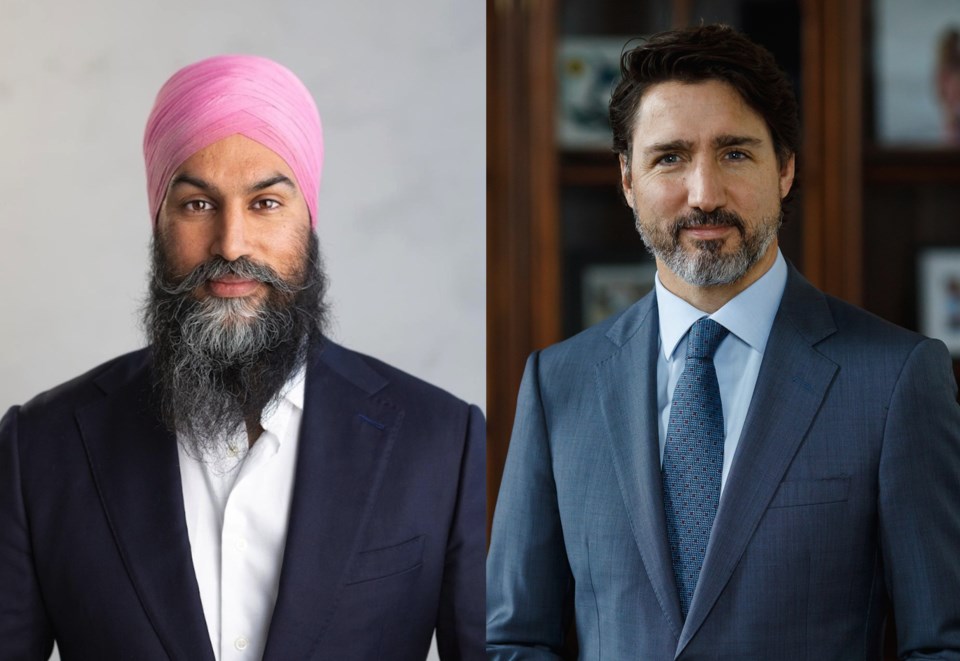This past week, Canadians saw the Liberals and the NDP come to a “confidence-and-supply” agreement which will allow the Liberals, with NDP support, to govern until the end of their term in 2025.
If there are no surprises.
At present, the Liberals hold 159 seats and the NDP 25 seats for a total of 184 between the two parties. Put the two parties together and they hold a majority in every province and territory except Alberta.
On a percentage basis, the two parties hold 50.4 per cent of the vote – a simple majority.
But none of this is making the Conservatives or the Bloc Quebecois happy. This is not surprising as the opposition always sits with the hope of somehow defeating and replacing the government. Or, at the very least, having an impact on policy and legislation.
Both parties have been sidelined for the duration of this government. And while the Conservatives could not build a strong enough relationship with either the NDP or the BQ to be able to mount an effective challenge to the Liberals, it does irk some Conservatives that they actually won the popular vote in the last election – 33.7 per cent to 32.6 per cent – but are relegated to the opposition benches. If only we had proportional representation, some conservative colleagues are saying.
While proportional representation might have given the Conservative party more seats in the House than the Liberals, it likely would not have allowed them to govern.
Proportional representation almost always ends up with a minority ruling party which then must form some sort of coalition to maintain power and hold more than 50 per cent of the vote. It can lead to some strange bedfellows as leaders look around for someone they can work with. Deals are struck. Parties with a significant number of votes woo the marginal parties. The marginal parties, in turn, make demands for their support. The Conservatives are too far right to form a coalition in Canada.
All of this political theatre is quite common in other parts of the world. It is not so common in Canada, although the provincial NDP and Green Party came to such an agreement after the 2017 election.
Will the agreement hold? Who knows? But it likely will if there are no surprises.
Todd Whitcombe is a chemistry professor at UNBC.


